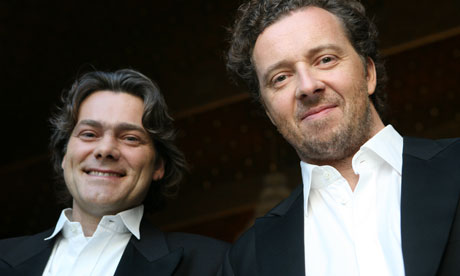
This year's Queen's Hall series opened with a recital by baritone Christian Gerhaher and pianist Gerold Huber - an unsparing all-Schumann programme structured round themes of betrayal and loneliness, with Dichterliebe, inevitably perhaps, at its centre.
Gerhaher has recently emerged as the man of the moment as far as lieder singers are concerned, a reputation confirmed by his performance on this occasion, despite a handful of drawbacks. He was singing with an apology for a cold. There were a few intonation problems early on, and an occasional unwillingness to sing high notes softly. The flaws were repeatedly outweighed, however, by his considerable communicative powers. There's a confessional quality in his singing that can startle. He sings as much off the text as off the musical phrase, with the result that you can hear every word and hear it given meaning. Yet he never over-enunciates or fractures the vocal line. Instead, he gives an impression of unforced emotional naturalness that avoids self-dramatisation. The overall effect is one of genuine intimacy.
His Dichterliebe was not so much a psychodrama as a bitter if muted reflection on the end of an affair, through which hints of gathering agitation became more apparent as the cycle progressed. Das ist Ein Flöten und Geigen had undertones of obsession. The sudden disillusionment of Allnächtlich in Traume was as restrained as it was painful.
The same expressive naturalness was very much apparent elsewhere. He opened with the Op 107 Gesänge, its careworn refrains taking greater depths of meaning with each repetition. The Harper's Songs from Goethe's Wilhelm Meister were numb with loneliness. The final group contained Tragödie, a triptych of Heine settings in which Gerhaher's sparse delivery spoke volumes about the nature of human isolation. Huber, meanwhile, matched his every emotional shift with playing of wonderful lucidity and subtlety. This was beautiful, if troubling music making, every second of it.

